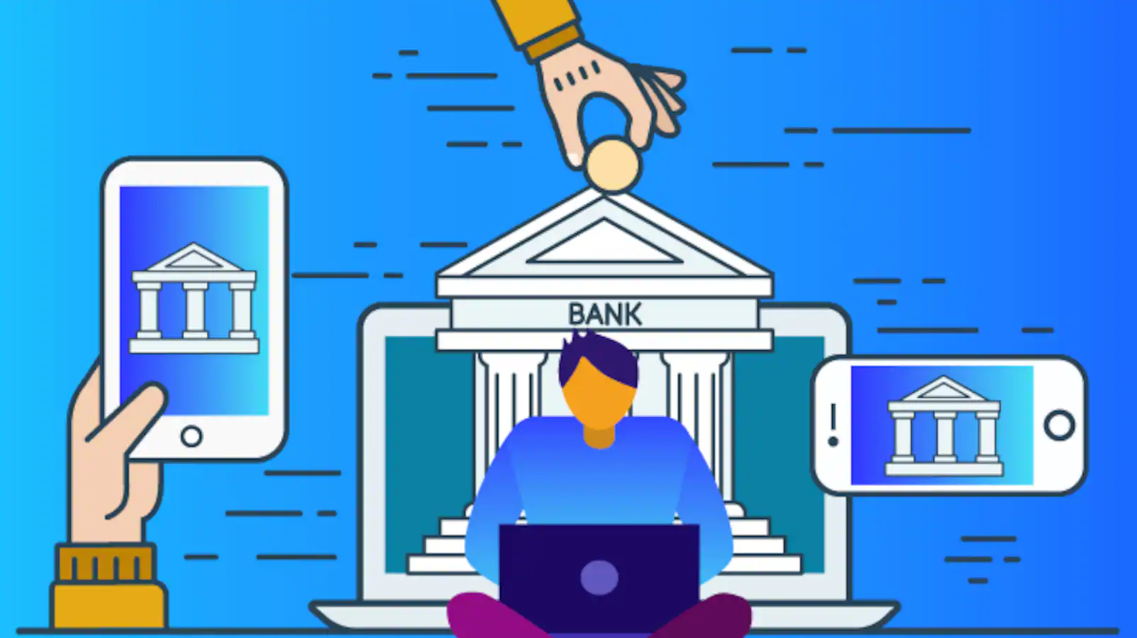The Future of Banking: How Fintech is Transforming Financial Services
The financial services industry is undergoing a dramatic transformation, mainly driven by the rapid advance of financial technology or fintech. From mobile banking to blockchain technology, these developments in finance are reshaping how we earn and spend money, how financial institutions are organized, and what form financial services take. This article looks into the future of banking and how fintech changes the financial services industry.
What is fintech?
Fintech is integration of technological tools into financial service offerings by companies to improve both their use and delivery to customers. It includes a wide range of applications: mobile banking, peer-to-peer lending, robo-advisors, cryptocurrencies and blockchain technology all belong under this umbrella. The primary objective
Key Transformation Areas
Digital Banking, Mobile Payments With the rise of fintech, digital banking and mobile payment platforms have become almost indispensable to users. Traditional banks have increasingly pushed out online service offerings, allowing customers to carry out transactions, check their account balances and get an overview of accounts without the need for face-to-face contact with bank staff. Mobile payment services like Apple Pay, Google Wallet and Samsung Pay let consumers use their smartphones for payments, achieving additional convenience and security. ### 2. Peer-to-Peer Lending, Crowdfunding Through fintech, capital has been placed at everyone’s fingertips: peer-to-peer (P2P) lending and crowdfunding platforms. P2P lending lets borrowers connect directly with investors, bypassing traditional banks. Platforms such as LendingClub and Prosper simplify this process, often leaving borrowers with better rates of interest and more flexible terms. Crowdfunding websites like Kickstarter and Indiegogo let entrepreneurs raise funds directly from the public, promoting innovation and entrepreneurial growth.
Robo-Advisors and Automated Wealth Management
Robo-advisors bring customers algorithm-driven financial advice with minimal human intervention. Companies with names like Betterment, Wealthfront, and Robo-Advisor supply personal recommendations for investment tailored to the user’s goals and needs. Fees for these platforms are often less than what people typically pay their financial advisors, hence they make investing manageable on a grander scale.
Blockchain and Cryptocurrencies
The technology behind cryptocurrencies, Bitcoin and Ethereum in particular, is the blockchain. It intends to change what is nowadays a range of financial-service procedures. Blockchain’s distributed and unchangeable database improves trust, reduces deceit and cuts out middlemen from transactions. With cryptocurrencies, people gain new ways to invest money or conduct cross-border business at a lower cost and quicker speed.
Insurtech and Personalized Insurance
The insurance industry also gets boosts from fintech, now known as insurtech. Companies such as Lemonade and Root use technology to provide personalized insurance policies, make submitting claims easier, and improve service. Insurers now have more reliable data with which to figure out who’s at risk and how much insurance should be priced artificially intelligent software.
Benefits of Fintech
Enhanced Customer Experience
In the field of fintech, promotion of user experience is paramount — people tout efficient interfaces, offerings that cater to each user individually, and access any time 24 hours every single day. Mobile apps plus websites deliver the convenience security that modern consumers desire for managing their money: they’re location unrestricted.
Cost Reduction and Efficiency
Automation and electronification also reduce banks’ operating expenses. By streamlining their operations and eliminating the need for physical plant, fintech can pass on these gains to customers in two forms: reduced charges plus better interest rates.
Democratizing Financial Services
Microfinance and P2P lending platforms provides credit options to individuals and small businesses that traditional banks might turn away. Mobile banking and digital wallets also bring banking services to people in remote areas or those without regular accounts.
Wealth Creation in the Digital Economy
The competitive environment in the financial services industry was fostered by Fintech. Startups and technology companies all force traditional banks to keep improving their products and services as well as to try new technologies. This competitive environment is also conducive to the development of superior products or services for the consumer.
## Barriers and Attitudes to Overcome
Oversight and Compliance
The rapid growth of fintech brings with it regulatory challenges. Governments and regulatory bodies must be able to encourage innovation while at the same time making sure people are protected and that our financial system remains stable. To aid fintech growth and curb risks, clear and flexible regulatory frameworks are necessary.
Cybersecurity and Data Privacy
The more we depend on digital platforms, the greater the pressure to provide good security and maintain data privacy. For fintech companies, robust security measures are indispensable. These protect against hacking and ensure sound customer data management. It is essential for consumers to realize the risks and guard their personal information accordingly.
Uptake and Integration into Society
This can provide many of the benefits of fintech but bringing it into use demands considerable changes in both infrastructure and customer behavior. Financial institutions need to invest in new technologies and train staff. Consumers on their part must become familiar with digital services and trust the new platforms.
Digital Divide
Fintech solutions are not equally available to all. The ‘digital divide’ – the differing levels of technology penetration resulting from geographic, social class, and age differences–will be one of the factors that limits the reach of fintech innovations. Efforts need to be made to ensure access to these technologies is equitable.
The Future of Fintech
There are already many evidence to show the future of fintech would continue to move and repletion; In the next period, emerging technologies such as AI, machine learning, and quantum computing will yet again change finance. AI will provide more accurate credit scores which is tailor-made for individuals; it also does advanced fraud detection. All three tasks which previously had to be left to analysts can now be done in seconds thanks to the combination of machine learning and specialised computing techniques.
In short, quantum computing can help solve difficult financial problems that tradition cannot do anything about; it could also vigorously optimize trading strategies: some things simply cannot be achieved at human speed. Banks adopting open banking, where customer data is shared with third-party providers as per the banks’ APIs (Application Programming Interfaces), will create new fintech applications and in turn encourage competition. Consumers will enjoy a more integrated financial ecosystem, capable of offering better adjusted services and goods.
In addition, fintech for sustainability and ethics is now enjoying greater attention. Companies are integrating environmental, social and governance (ESG) considerations increasingly into their products and services. Green fintech initiatives such as carbon footprint monitoring and sustainable investment platforms will be highly important for dealing with global problems.
Conclusion
Fintech has undeniably changed banking and financial services in the future. It is making these changes take place by improving customer experience, reducing costs and promoting financial inclusion. But there are still many challenges ahead: regulation, cybersecurity issues and ensuring fair and equitable access to the benefits of fintech development. As technology advances further, the financial services industry needs to adapt and innovate so as to meet the requirements of a digital future. Done correctly, fintech can create a financial ecosystem that is more effective, more comprehensive and more resilient.










